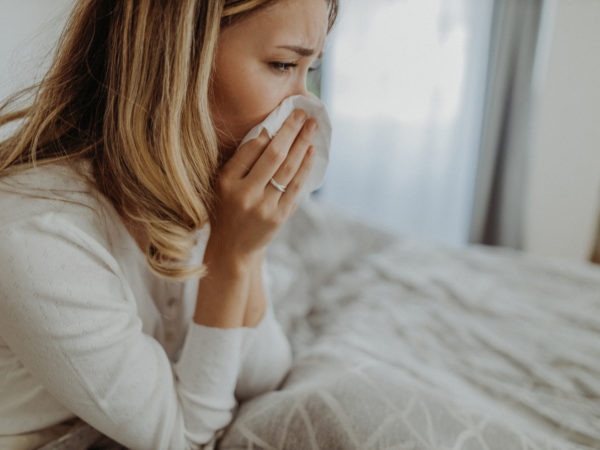Are You Allergic to Your Bedding? 5 Signs to Look For

Good sleep is essential for wellness. If you’re not sleeping well, there’s a chance that your bedding could be part of the problem. If you’re experiencing sneezing, runny nose, itching, or other unpleasant sleep disruptors, your bedding or a common irritant living within your bedding might be to blame.
In this post, I’ll discuss five common signs to look for that suggest you could be allergic to the fabric or other materials within your sleep environment.
1. Persistent Itching
If you find that you feel itchy or that your skin is red and inflamed upon waking, it could be because of your bedding. Dust mites, which are microscopic creatures that tend to accumulate in bedding over time, can cause itching or other allergic reactions. Dust mites thrive in warm, humid environments, so it’s important to wash your bedding in hot water as often as possible to keep it fresh and free of dust mites.
2. Frequent Sneezing
Frequent sneezing or waking up with a runny nose throughout the night is a good indication that there’s something within your sleep environment that you might be allergic to. Allergens, such as pet dander and pollen, can accumulate in your bedding over time if it is not cared for regularly. Consider investing in healthier, hypoallergenic bedding that’s specifically designed to help keep common irritants at bay. If that does not improve your symptoms, or at least not entirely, consider adding an air purifier to your room that contains a HEPA filter for lessening allergens in the air.
3. Dry, Irritated Skin
If your skin feels constantly dry and irritated after a night of sleep, it may be time to reassess your sleep environment. Certain fabrics, especially those that are totally synthetic, can be abrasive and even sometimes toxic to sensitive skin, leading to a condition called textile dermatitis. Consider switching to a softer, smoother all-natural fabric like cotton or hemp.
4. Watery Eyes
Waking up with watery eyes is another common indicator that you could be suffering from an allergic reaction related to dust mites or the fabric make-up of your bedding. If the above actions are not solving this, consult your primary care physician or another trusted healthcare professional to get to the root cause of your allergy symptoms.
5. Trouble Breathing at Night
If you’re having trouble falling or staying asleep, or you find yourself waking up feeling short of breath or wheezing, your bedding may be causing your breathing difficulties. Again, certain fabrics, such as those that are completely synthetic (i.e., nylon, spandex, and microfiber), can trap dust mites and other allergens, making it difficult to breathe and sleep comfortably.
Keep this in mind: Allergies can disrupt your sleeping pattern and impact your overall health. If you experience any of the five signs mentioned above, it may indicate the presence of dust mites or a sensitivity to the materials used in your bedding.
To help mitigate these issues before your next check-up with your doctor, wash your bedding regularly with hypoallergenic detergents, use a high-quality mattress and pillow protector, and consider switching to bedding made with natural materials. By taking these steps, you can ensure that you get a good night’s sleep without being bothered by allergy symptoms.
Today’s Health Topics
Editor's Pick
Health Focus
Ask Dr. Weil's Q&A
| sponsor | ||
 |
||
|










